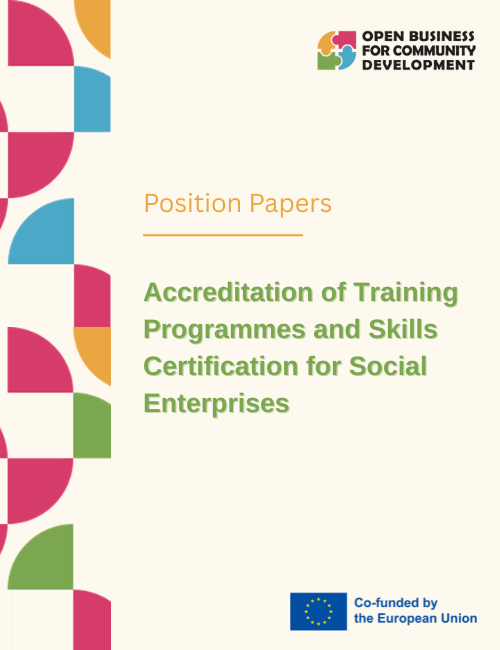Empowering Social Enterprises: Certification and Accreditation for Success
As social enterprises play a pivotal role in addressing society's most pressing challenges, the importance of quality training for their workforce has never been more significant. The European Union has made strides in promoting educational opportunities, but much of the training offered to social enterprises (SEs) focuses on operational management rather than long-term sustainability and social impact. To close this gap, the Open Business for Community Development (OBCD) project has developed a position paper that outlines key recommendations for improving certification and accreditation in SE-related training.
In response to identified skill gaps and emerging professional roles in the social economy, OBCD has designed two innovative training courses for Administrative Professionals and Managers/Developers in SEs. These modular curricula are built to respond to the unique needs of social enterprises, offering personalized learning paths that align with the European Qualifications Framework (EQF).
However, the challenge extends beyond curriculum development. The OBCD position paper emphasizes the need for a certification system that can guarantee SE employees acquire the right mix of business acumen and social responsibility. Key recommendations include:
- Certification and Accreditation: Training for SEs should be formally accredited and aligned with the European Qualifications Framework (EQF) and ESCO competencies to ensure international recognition. This approach will bridge the gap between social impact and economic sustainability, making social enterprises competitive in a global marketplace.
- Micro-Credentials: Offering flexible, stackable micro-credentials will allow social entrepreneurs to progressively acquire the skills needed to grow their enterprises. These qualifications should be integrated into national and EU educational frameworks for broader acceptance and mobility.
- Supporting Local Ecosystems: Local hubs such as incubators, accelerators, and co-working spaces should play a central role in providing SEs with the resources and networking opportunities they need. These hubs can further align certification programs with competencies essential for social enterprises, ensuring long-term sustainability.
With these recommendations, the OBCD project aims to empower social enterprises to thrive by ensuring they have access to high-quality, relevant training. Together, policymakers, educational institutions, and social enterprises can build a robust framework that fosters innovation and social impact.
🚀 Learn more about: https://www.obcdproject.eu/policy-recommendations/



